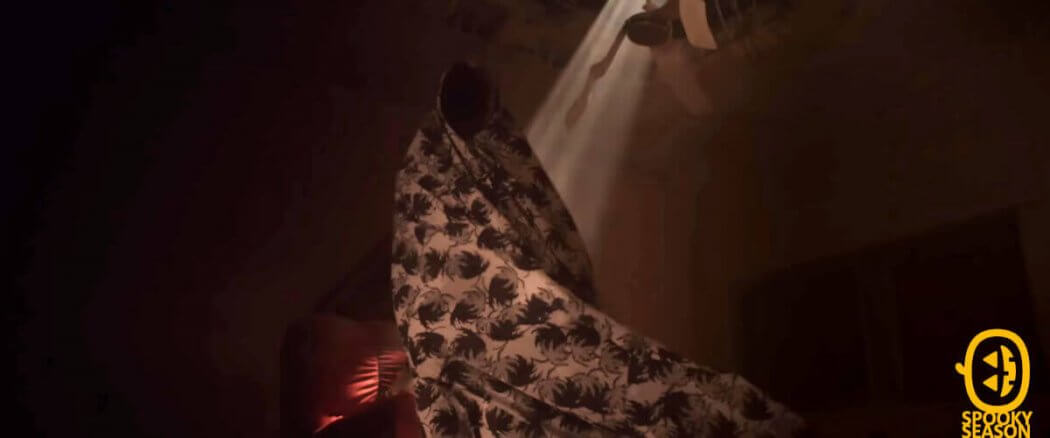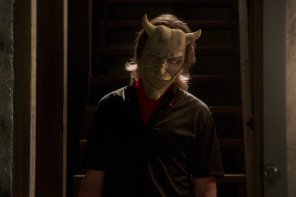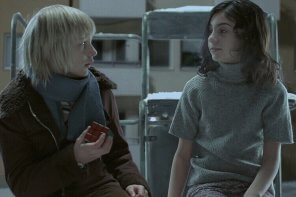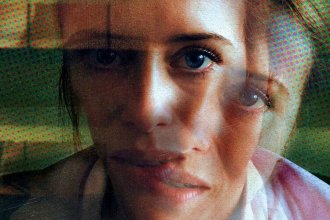The “haunted house” trope – an abandoned Victorian mansion sitting alone in the middle of a great estate or a crumbling castle on a rain-swept hillside – has been urbanized over the last thirty years. Our modern cities don’t have enough noise and technology to keep ghosts away. Candyman sets a vengeful spirit among Chicago‘s high-rise, densely-packed public housing projects. Japanese Yūrei haunt dysfunctional suburban homes in Ju-On and Ringu. Rosemary’s Baby brought supernatural horror into one of New York’s most famous apartment buildings. Continuing the tradition of urban ghost stories is Under the Shadow from Iranian writer-director Babak Anvari. Taking place in the 80s just after the Islamic Revolution, Shadow balances a critique of the new government’s tyrannies with a story about evil spirits haunting an apartment building in Tehran.
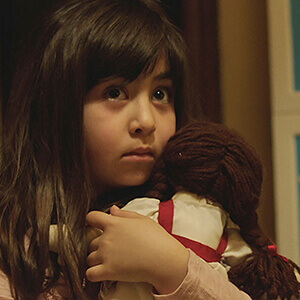
Supernatural evil as depicted in books, movies and folktales seems to be universal with only the particulars needing translation. The events in Shadow aren’t too different from other “haunted apartment” films: ghostly voices, grotesque apparitions, cursed objects, but the cultural context and lead performances add layers of interest. If you’re looking for more stops on your international ghost tour this Halloween, add Under the Shadow to your list.
During the Iran-Iraq War, modern families like Shideh (Narges Rashidi), her husband Iraj and their 4-year old daughter Dorsa, were especially trapped between worlds. Having experienced a contemporary lifestyle pre-revolution, they were now under the thumb of an Islamic government instituting Sharia law. Iraq was bombing civilian population centers and many young men were being conscripted and sent to the front. When Iraj, a young doctor, gets sent away to fight, Shideh and Dorsa stay behind in the apartment complex and try to make the best of a bad situation. An undetonated Iraqi bomb hits the building resulting in one death, and people start fleeing. Some residents believe the bomb has brought with it a Jinn – kind of like a Persian demon or evil spirit. What begins as a very realistic family war drama quickly becomes a top-notch ghost story.
Shideh, who was kicked out of medical school for protesting during the revolution, takes a hard, rationalist stance. Of course there’s no such thing as a Jinn! Dorsa, convincingly played by Avin Manshadi, becomes sluggish and obsessed with finding her missing doll. The common signs of some kind of possession are all over her – talking to invisible entities, having supernatural knowledge of people and events, growing listless and sick for no apparent reason. A neighbor is convinced the Jinn is at work in the complex. Shideh’s stubbornness finally erodes when she sees the dead body of the a neighbor disappear through a crack in the ceiling. As her attempts to leave the apartment fail one after another, her determination to confront the evil spirit to save her daughter becomes stronger.
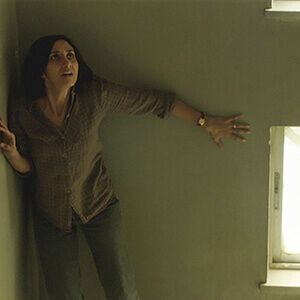
The idea of being oppressed by spiritual forces is a double-entendre in this film. What is the “Shadow” Shideh and Dorsa are under if not the threats of male-dominated violence under Sharia law? Her male department head mocks her when Shideh tries to return to school. The local police arrest and threaten her with a beating for not wearing a veil as she flees the Jinn (and promptly return her to her haunted apartment). The repair man is suspicious when she accidentally reveals a piece of forbidden Western culture (a VCR with Jane Fonda workout tapes). The landlord treats her like a child who is in need of guidance and discipline. Even Shideh’s husband is unwilling to fight for her rights as long as he gets to preserve his own. Protecting her daughter from the Jinn becomes a clear metaphor for protecting Dorsa from growing up in a country that silences, abuses and oppresses women. That the Jinn takes the form of a woman who promises to take care of Dorsa by removing her from the world is telling; the only way for these women to flourish is to flee.
As a “haunted apartment” movie, Under the Shadow is as good as many others in the genre. Dark Water with Jennifer Connelly especially comes to mind as it contains similar protagonists and scenarios. The historical setting, with its political subtext, makes this movie stand out. It is excellently directed and the scares are genuine.

